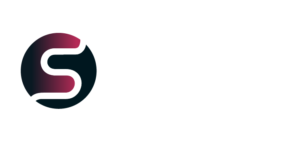About SÁGORA
Software for streaming audio over the internet. Redistribution, modification and / or use is permitted under the terms of the GNU General Public License.
SÁGORA is a fork of the free software developed by Volker Fisher called Jamulus, which allows free improvisation sessions (Jam) to be carried out online, relying on the permissions granted through the GNU General Public License. It has been developed and maintained in the repository https://github.com/corrados/jamulus
Repository: LINK
Responsible for the project: Diego Romero Mascaró and Esteban Calcagno.
Developers: Nicolás Rodriguez Altieri, Sebastián Zavatarelli, Francisco de Martino, Patricio Sosa, Esteban Calcagno.
Design implementation / bug detection: Florencia Muriel González.
Web development: Sebastián Zavatarelli.
Press and communication: Diego Surueta.
Graphic design: Rodrigo Funes.
Audiovisual development: Edgardo Ybañez.
Digital content and social networks: Ana Bulla and Nicolás Bastida.
It works on OSX (10.13 onwards), Windows (8 onwards), Linux x86-64 / AMD64 64-bit and x86 32-bit and Raspbian, the Raspberry Pi operating system.
SÁGORA is a free and free software, designed by artists / researchers from the University School of Arts of the National University of Quilmes, Argentina.
It allows multiple users to connect in a virtual room and transmit audio in real time without canceling the signals, as happens in the platforms commonly used for teleconferencing. This particularity makes it an extremely useful application for musical practice, both in the cultural industries and education sectors, since it allows rehearsals and / or concerts using the internet.
SÁGORA is developed in C ++ and works with socket technology to send and receive audio information. It has the ability to match the different latencies of all the people connected, ensuring that the signals arrive at the same time and there is no sense of delay between the signals. It allows you to create rooms or connect to rooms, from where you can listen to the different participants, sharing the same sound space. The rooms have a code that makes access restricted.
For the design and development of SÁGORA, an environment that favors research and interdisciplinarity was needed, such as the National University of Quilmes (UNQ). In the particular case of these artists / researchers you can even find a crossroads and collaboration between different research projects. Dr. Esteban Calcagno is Director of the Bachelor of Music and Technology at the UNQ and of one of the projects to promote research on institutional strategic issues (PITEI), created at the UNQ at the end of 2018. This project is called “Platform of services for digital education” and its purpose is to create a platform and applications for online education. For his part, Lic. Diego Romero Mascaró is Director of the UNQ University School of Arts, a member of the PITEI “Platform of services for digital education” and co-director of the research project “Technological developments applied to the arts” , which is also integrated, among other researchers and scholarship holders, by Lic. Nicolás Rodríguez Altieri, a member of the SÁGORA team.
SÁGORA is free software; you can redistribute it and/or modify it under the terms of the GNU General Public License as published by the Free Software Foundation; either version 2 of the License, or (at your option) any later version.
This program is distributed in the hope that it will be useful, but WITHOUT ANY WARRANTY; without even the implied warranty of MERCHANTABILITY or FITNESS FOR A PARTICULAR PURPOSE. See the GNU General Public License for more details.
You should have received a copy of the GNU General Public License along with his program; if not, write to the Free Software Foundation, Inc., 59 Temple Place, Suite 330, Boston, MA 02111-1307 USA
SÁGORA uses the following libraries, resources or code snippets:
Qt cross-platform application framework: http://www.qt.io
Opus Interactive Audio Codec: http://www.opus-codec.org
Audio reverberation code: by Perry R. Cook and Gary P. Scavone, 1995 – 2004 (taken from The Synthesis ToolKit in C++ (STK))
Skins were developed by Rodrigo Funes.
Contact
info@sagora.org
